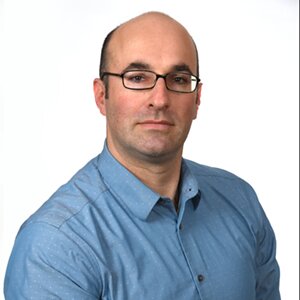
- This event has passed.
CBE Shell Seminar Series – Allon Hochbaum
October 20, 2023 @ 10:00 am - 11:00 am

Dr. Hochbaum is an Associate Professor in the Departments of Materials Science and Engineering, Chemistry, Chemical and Biomolecular Engineering, and Molecular Biology and Biochemistry at the University of California, Irvine.
Natural and Synthetic Designs of Conductive and Responsive Protein Nanowires
Abstract: Electronic signals are the default carriers of information in solid-state devices, while biology mainly traffics in chemical and ionic signals. Materials that can transduce biological and electronic signals are key to bridging living systems with synthetic devices such as soft robotics, therapeutic and prosthetic implants, and wearable sensors. Ideal materials should mimic not only the soft mechanics of cells and tissue, but also the dynamic nature of biological systems in response to stimuli. This talk will cover our progress in understanding the structural basis for conductivity in bacterial cytochrome nanowires, and our development of stimuli-responsive, self-assembling, conductive peptide nanowires:(1) Nature has evolved protein assemblies that conduct electronic charge over nanometer to centimeter distances as part of an anaerobic respiratory metabolic pathway called extracellular electron transfer. 2) We design heme-free and heme-binding peptides (short proteins) that self-assemble into conducting filaments and mimic the environmental responsiveness of other biological filaments.